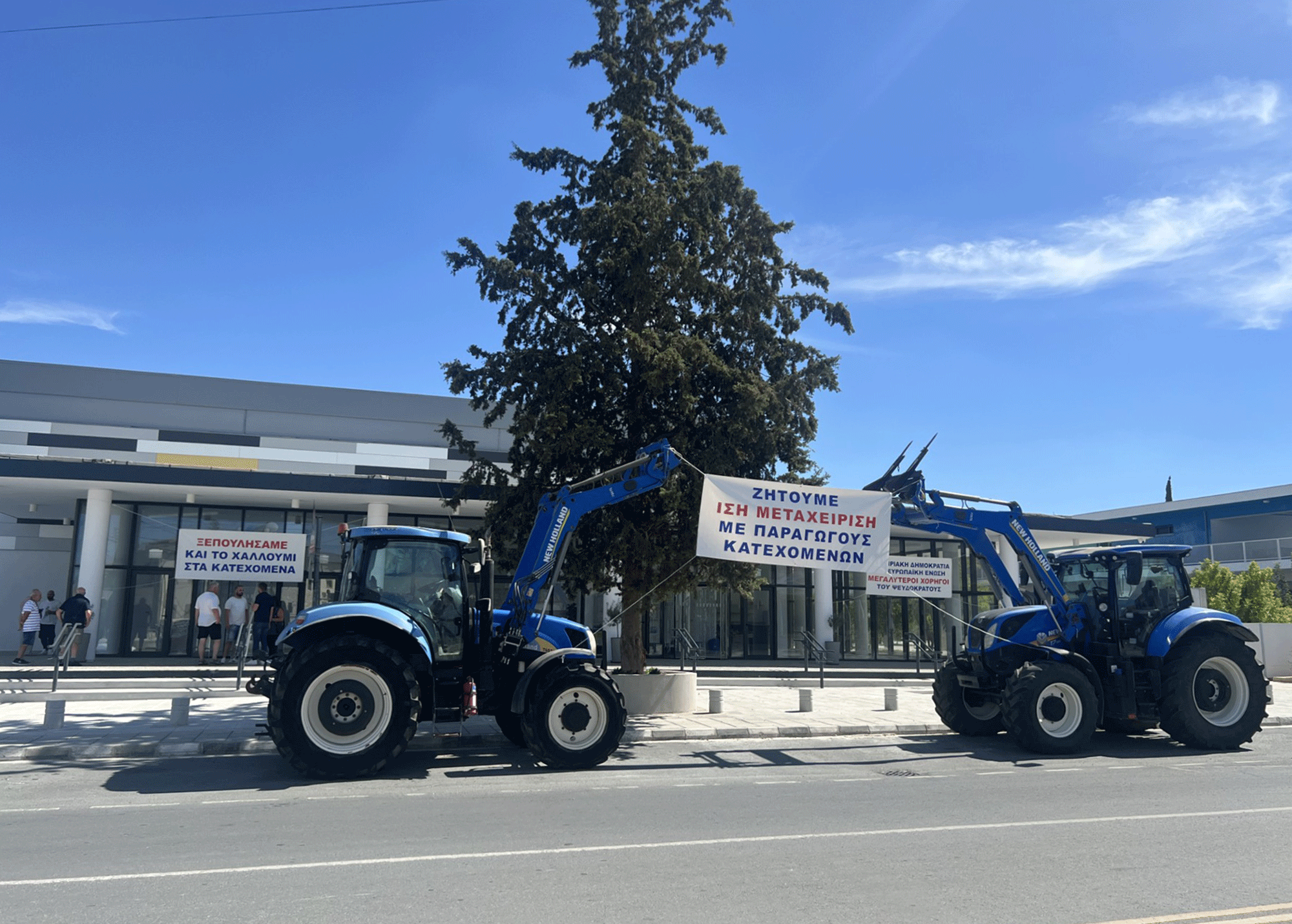Cow farmers on tractors and milk tankers will take their grievances to the presidential palace and the EU house in Nicosia on October 3, they announced on Wednesday.
During the protest, the cow farmers will hand memoranda to the president of the republic and the head of the EU representation in Cyprus, demanding clarifications on various issues, including regulation discrepancies between south and north.
The decision for the protest was taken at a meeting in Athienou called on the occasion of new EU funding for the north “worth €39.5 million, with the largest part earmarked to support the production and export of halloumi.”
It was also spurred by statements made by agriculture ministry permanent secretary Andreas Gregoriou, who said the government’s aim was for halloumi production to include 51 per cent goat and/or sheep milk by the year 2029.
The cow farmers say the state’s decision to support the north took its toll on the economy in the south, while “the extermination of cattle breeding is being attempted” by 2029.
The farmers pointed out that there are no restrictions on the ratio of milk in the north when exporting to third countries, however things were very strict in the Republic irrespective of export destination, which increased the cost of production and created conditions of unfair competition.
They also said that 75 per cent of halloumi exports from the south went to countries outside the EU.
“If the Republic of Cyprus wishes to subsidise the north’s economy through the EU in the framework of the effort to find a solution to the Cyprus problem, it can continue to do so. However, what we cannot tolerate are actions undermining the growth of cheesemaking in the south to the benefit of the cheesemaking sector in the north,” the cattle farmers said.
Earlier on Wednesday, Agriculture Minister Maria Panayiotou said the state’s aim was to maintain halloumi as its main agricultural export product, strengthening its protected designation of origin (PDO).
She reminded producers of their eligibility to dip into €10 million worth of subsidies.
Panayiotou, who is seeing organisations involved in the production and promotion of halloumi, on Wednesday met the goat and sheep farmers.
She said various demands already put forward are being examined and a committee had been set up to facilitate finding solutions.
Panayiotou added that checks have been intensified and efforts are being made to make legislation stricter.







Click here to change your cookie preferences